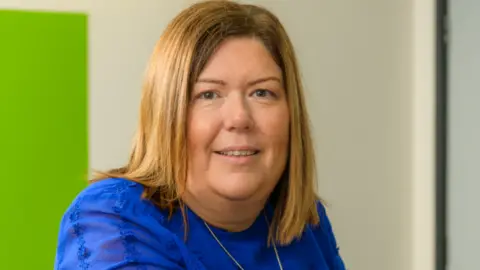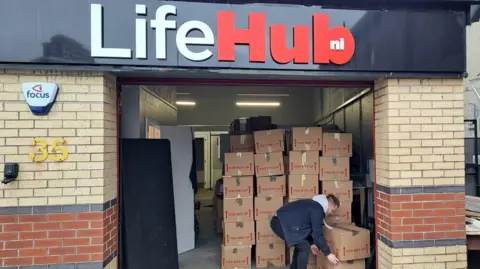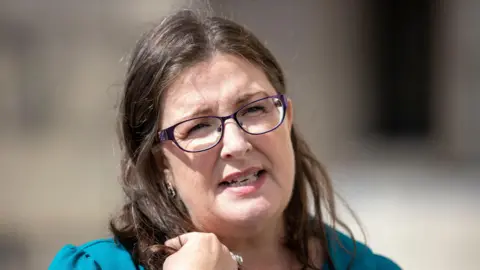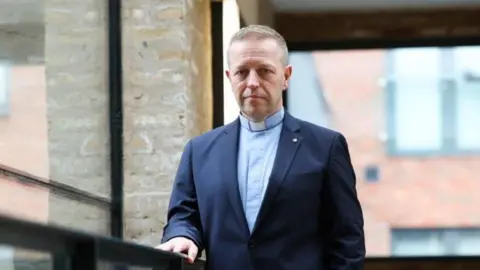The community and voluntary sector is expecting to face redundancies because of increases in employers' National Insurance contributions (NIC), according to the chief executive of the Northern Ireland Council for Voluntary Action (NICVA).
One organisation providing social care services anticipates extra costs of up to £500,000.
Celine McStravick told BBC News NI that without government intervention, the sector would be "on its knees" when the changes come into effect in April.
She added that some organisations may be forced to reduce their front-line services.
 Michelle Janes
Michelle JanesThe National Insurance (NI) rise for employers is set to raise £20bn a year making it one of the biggest single tax-raising measures in history.
It was announced in the recent Chancellor's budget.
From next April, employers will have to pay NI at 15% on salaries above £5,000, instead of 13.8% on salaries above £9,100 currently.
The voluntary sector employs more than 55,000 staff and makes up almost 7% of the workforce in Northern Ireland.
Many of these organisations are awarded public sector grants to deliver services on behalf of the government.
In a survey of 68 organisations carried out by NICVA, 76% said they expect major financial impacts from the increase, with many facing additional costs of between £5,000 and £200,000 from April 2025.
One large social care provider, Barnardo's NI, anticipates extra costs of more than £200,000.
Its director Michelle Janes told BBC News NI that they will be "held accountable" for providing public services on behalf of the public bodies who have been protected from the rise in NICs.
"Ultimately, that will have an impact on the babies, children, young people, and families in our communities," she added.

The sector was already under pressure from funding cuts before the NIC rise was announced in October.
More than 50 community and voluntary groups faced a 50% cut in core funding in May 2023.
NICVA is calling for voluntary and community organisations to be protected in the same way as public sector organisations through receiving reimbursement for the planned rise in employer NICs.
"I want our sector not to get special treatment but just equal treatment," Ms McStravick said.
Adding that she believes the NIC increase "threatens the very sustainability of Northern Ireland's voluntary sector at a time when our services are needed most".
Executive must 'step in'
Speaking on the BBC's Sunday Politics Northern Ireland programme, Foyle MP Colum Eastwood said this is "another blow" to community and voluntary groups who have been "up against it for a long time".
"I think we will see major impacts on the ground unless those organisations are protected," he said.
"To be honest, I don't think there's going to be much good news around that and the executive are going to have to find a way to step in."

PA Media
Alliance MLA Kellie Armstrong said the potential for a reduction in services is "extremely concerning" for the Northern Ireland Executive.
She said community services are the "backbone of what we do".
"If we didn't have voluntary and community organisations providing the services they have...government would struggle to keep surviving," she said.
She said she does not think there are too many organisations but that it's "sad" that there isn't enough money to invest in the work that they do.
'Financial madness'
 East Belfast Mission
East Belfast MissionAndrew Irvine and his team from East Belfast Mission have been delivering nine tonnes of toys for families that cannot afford gifts for their children this Christmas.
He said that increasing employer contributions to community organisations is "financial madness" that is "going to cost the government money".
"By effectively sending people in need back to public services, back to their GPs, this is going to cost the government money," he said.
"If you increase employer contributions to community organisations, that money comes directly away from community services. There's no customer to pass that rise on to, so we will have to reduce our services."


0 Comments